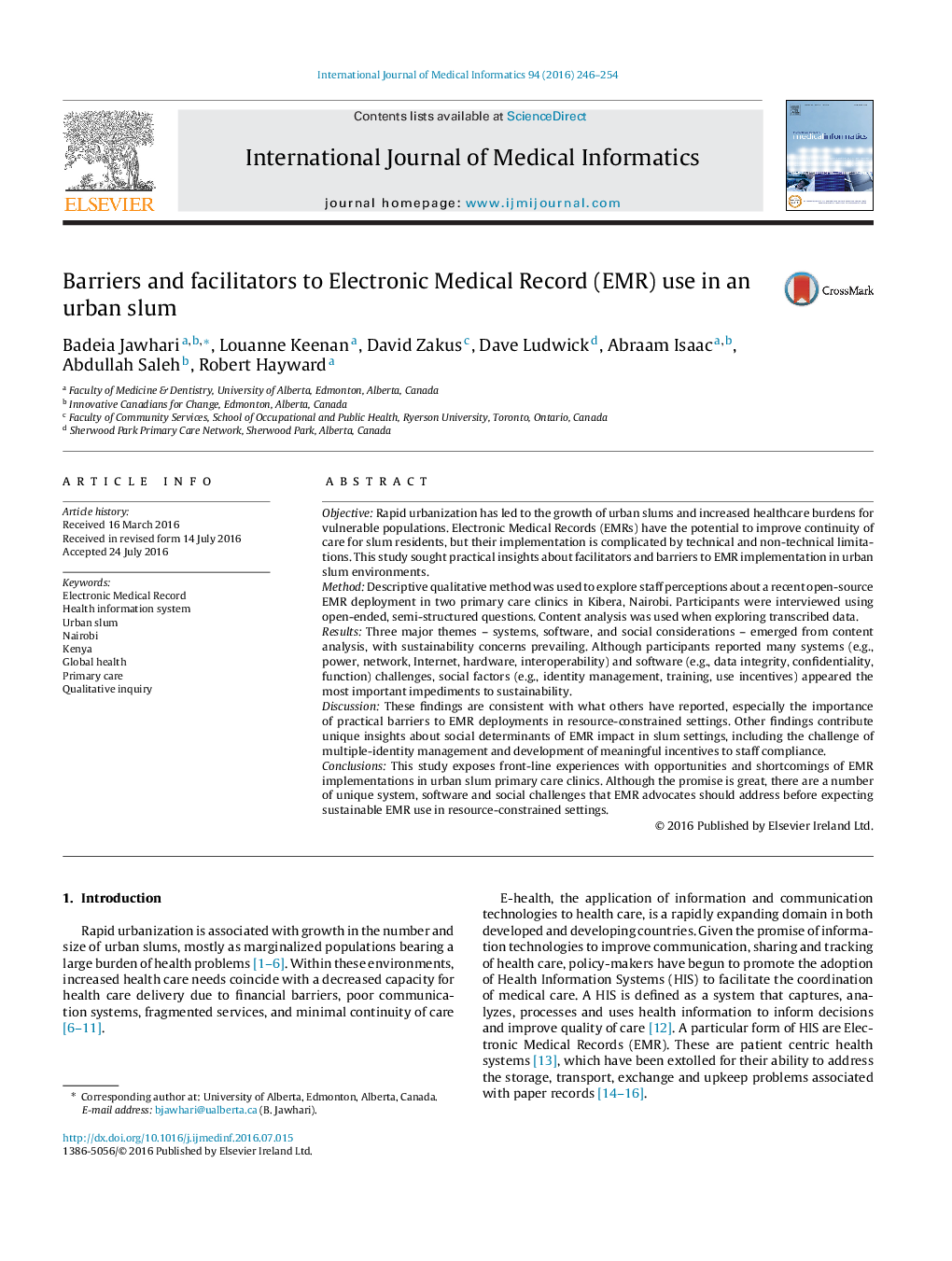| کد مقاله | کد نشریه | سال انتشار | مقاله انگلیسی | نسخه تمام متن |
|---|---|---|---|---|
| 516000 | 1449094 | 2016 | 9 صفحه PDF | دانلود رایگان |
• Lack of systems (interoperability) hinder successful adoption causing resistance to change.
• Social factors outweigh system and software factors.
• Financial and non-financial incentives are important to clinic staff.
• Social challenges unique to urban slums, EMRs can support identity management.
• Sustainability of systems, software and social factors must be addressed.
ObjectiveRapid urbanization has led to the growth of urban slums and increased healthcare burdens for vulnerable populations. Electronic Medical Records (EMRs) have the potential to improve continuity of care for slum residents, but their implementation is complicated by technical and non-technical limitations. This study sought practical insights about facilitators and barriers to EMR implementation in urban slum environments.MethodDescriptive qualitative method was used to explore staff perceptions about a recent open-source EMR deployment in two primary care clinics in Kibera, Nairobi. Participants were interviewed using open-ended, semi-structured questions. Content analysis was used when exploring transcribed data.ResultsThree major themes – systems, software, and social considerations – emerged from content analysis, with sustainability concerns prevailing. Although participants reported many systems (e.g., power, network, Internet, hardware, interoperability) and software (e.g., data integrity, confidentiality, function) challenges, social factors (e.g., identity management, training, use incentives) appeared the most important impediments to sustainability.DiscussionThese findings are consistent with what others have reported, especially the importance of practical barriers to EMR deployments in resource-constrained settings. Other findings contribute unique insights about social determinants of EMR impact in slum settings, including the challenge of multiple-identity management and development of meaningful incentives to staff compliance.ConclusionsThis study exposes front-line experiences with opportunities and shortcomings of EMR implementations in urban slum primary care clinics. Although the promise is great, there are a number of unique system, software and social challenges that EMR advocates should address before expecting sustainable EMR use in resource-constrained settings.
Journal: International Journal of Medical Informatics - Volume 94, October 2016, Pages 246–254
